Are you considering a career as a legal assistant? This dynamic field offers a unique blend of organization, communication, and critical thinking skills, making it an exciting choice for those interested in the legal world. With the right letter template, you can present your qualifications effectively and stand out to potential employers. Ready to dive into the essentials of crafting the perfect application letter? Keep reading to uncover valuable tips and insights!

Professional Tone
Frustrating delays in legal document processing can hinder case progression in law firms, especially during high-stakes litigation. Efficient legal assistants utilize document management systems such as Clio or MyCase to streamline workflows, ensuring timely filing of motions and briefs in courts like the U.S. District Court. Attention to detail in proofreading can prevent costly errors, safeguarding against potential malpractice claims. Regular communication with clients, attorneys, and court personnel enhances collaboration, ensuring seamless operations. Employing organizational skills is crucial for managing deadlines, particularly in fast-paced environments like corporate law firms and family law practices.
Qualifications and Skills
A legal assistant requires specific qualifications and skills to effectively support attorneys in various legal tasks. Proficiency in legal research tools such as Westlaw and LexisNexis is crucial for sourcing relevant case law, statutes, and legal precedents. Familiarity with legal terminology, procedures, and documents such as briefs, motions, and discovery materials enhances communication and drafting accuracy--often measured by certifications such as the NALS Certified Legal Assistant (CLA) credential. Organizational skills are essential for managing case files and deadlines, often facilitated by project management software like Clio or MyCase. Attention to detail is vital when reviewing contracts or filings to prevent costly mistakes, while strong written and verbal communication abilities enable effective interaction with clients, court personnel, and legal teams. Technical proficiency in software like Microsoft Office and practice management tools contributes to overall efficiency in the demanding legal environment.
Relevant Experience
As a legal assistant, proficiency in managing legal documents is paramount, with experience in drafting motions, contracts, and pleadings for various cases, including family, criminal, and civil law. Familiarity with legal research tools, such as Westlaw and LexisNexis, enhances capabilities to gather pertinent case law and statutes to support legal arguments effectively. Knowledge of filing procedures in specific courts, like the United States District Court, aids in timely submission of paperwork, ensuring compliance with local rules. Additionally, strong organizational skills facilitate the management of case files and deadlines, contributing to the smooth operation of legal practice. Effective communication with clients, attorneys, and opposing counsel ensures the accurate exchange of information and fosters professional relationships. Proficiency in software like Microsoft Office Suite and case management tools streamlines workflow, showcasing adaptability in fast-paced legal environments.
Attention to Detail
Attention to detail is a critical skill for legal assistants working in law firms, where precision in documents such as contracts, briefs, and case filings is paramount. For example, even a small typo in a legal document can lead to misunderstandings, potential lawsuits, or a loss of credibility in court proceedings. Legal assistants must meticulously review case files and ensure compliance with intricate legal standards and local court rules, which can vary significantly between jurisdictions. Furthermore, organizing evidence for trials requires an unerring focus on details to maintain the integrity of the case. This role often involves managing sensitive information and adhering to deadlines that can impact clients' lives, highlighting the importance of accuracy in every task.
Understanding of Legal Terminology
Grasping legal terminology is essential for the effective functioning of a legal assistant within various branches of law, such as criminal law, civil law, and corporate law. Familiarity with intricate terms such as "plaintiff" (the person who brings a case against another in a court of law) and "defendant" (the individual being accused or sued) can facilitate clearer communication among attorneys, clients, and court officials. Knowledge of procedural phrases like "discovery" (the pre-trial stage in a lawsuit where parties exchange information) and "deposition" (the process of taking sworn, out-of-court testimony from a witness) ensures the legal assistant can efficiently support case preparation. Additionally, understanding terminology related to legal documents, including "affidavit" (a written statement confirmed by oath) and "subpoena" (a document ordering a person to attend a court proceeding), enhances effectiveness in drafting and reviewing essential paperwork. Comprehensive knowledge of legal jargon contributes significantly to navigating the complexities of the justice system and supporting legal professionals in achieving favorable outcomes for their clients.
Letter Template For Legal Assistant Positions Samples
Letter template of cover for legal administrative assistant applications

Letter template of expression of interest for litigation assistant positions
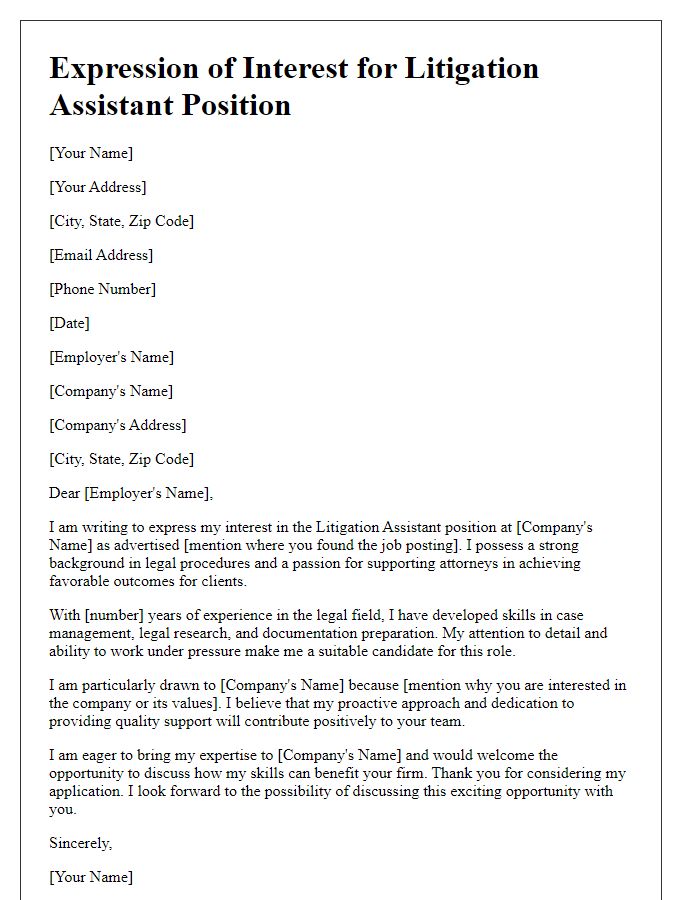
Letter template of request for an interview for law office assistant jobs
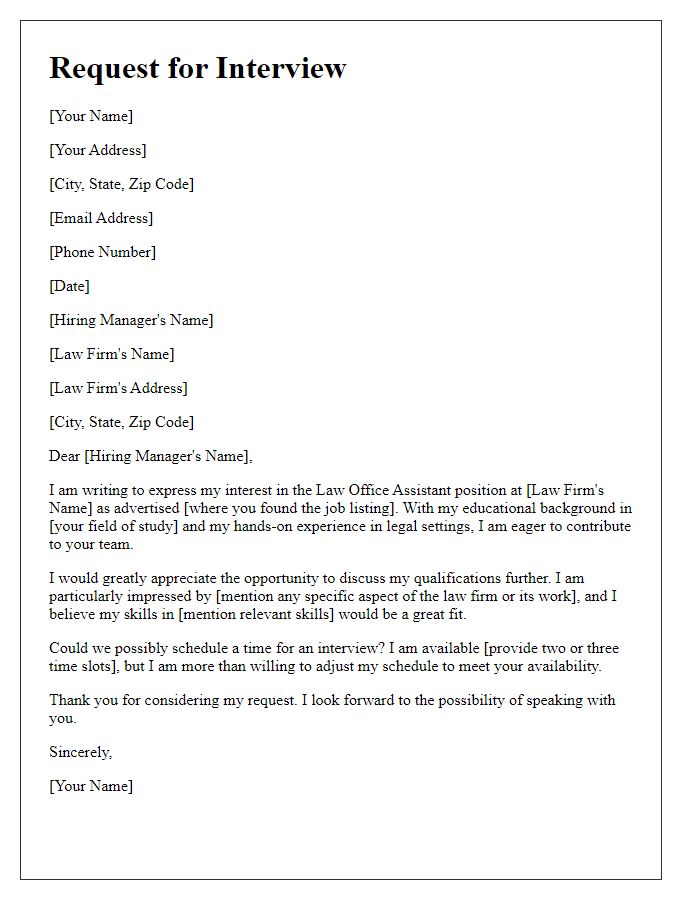
Letter template of update for career advancement in legal assistant roles
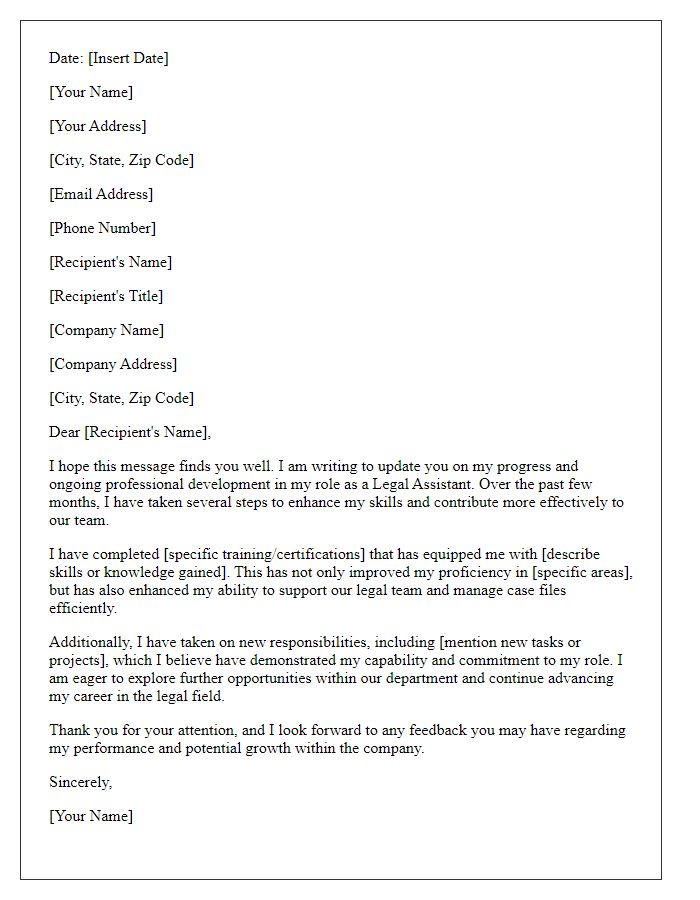

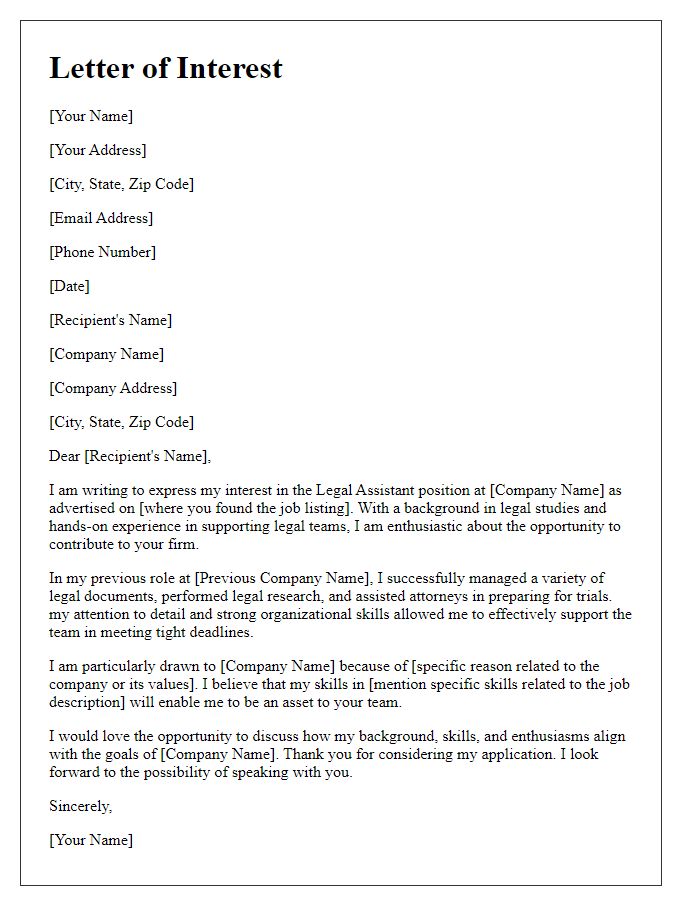
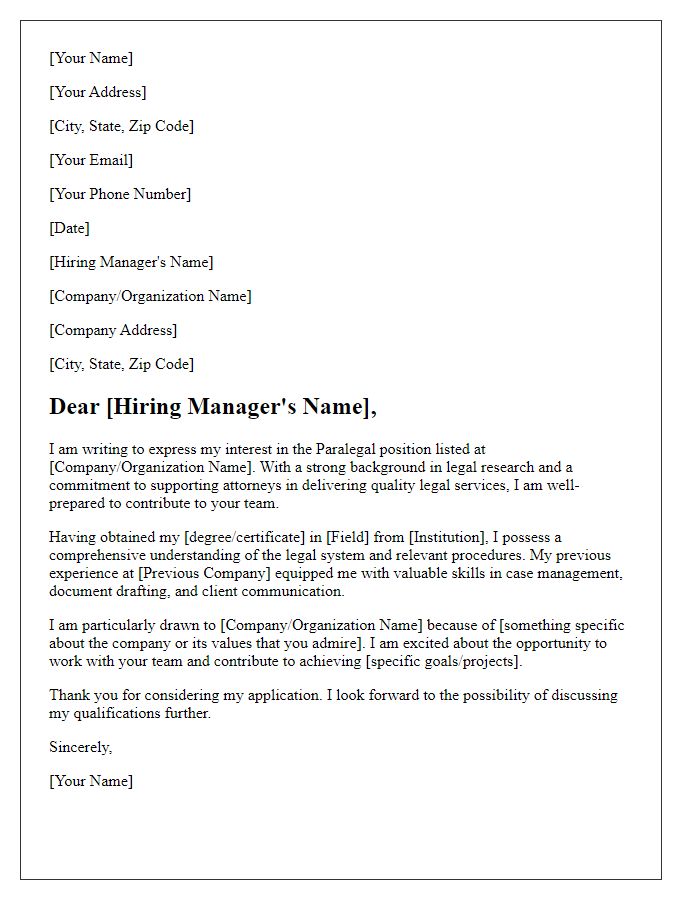
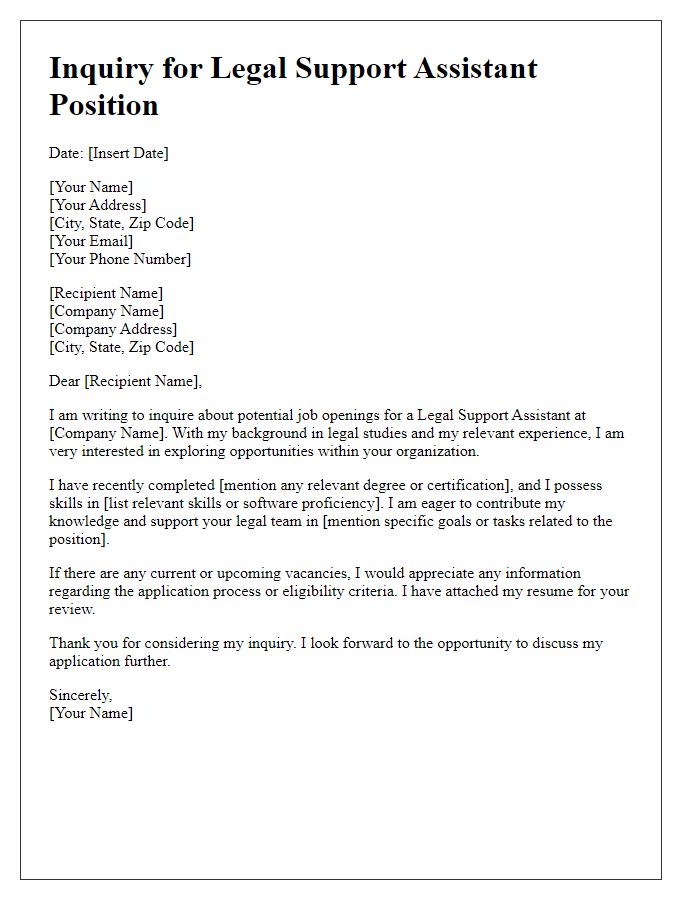
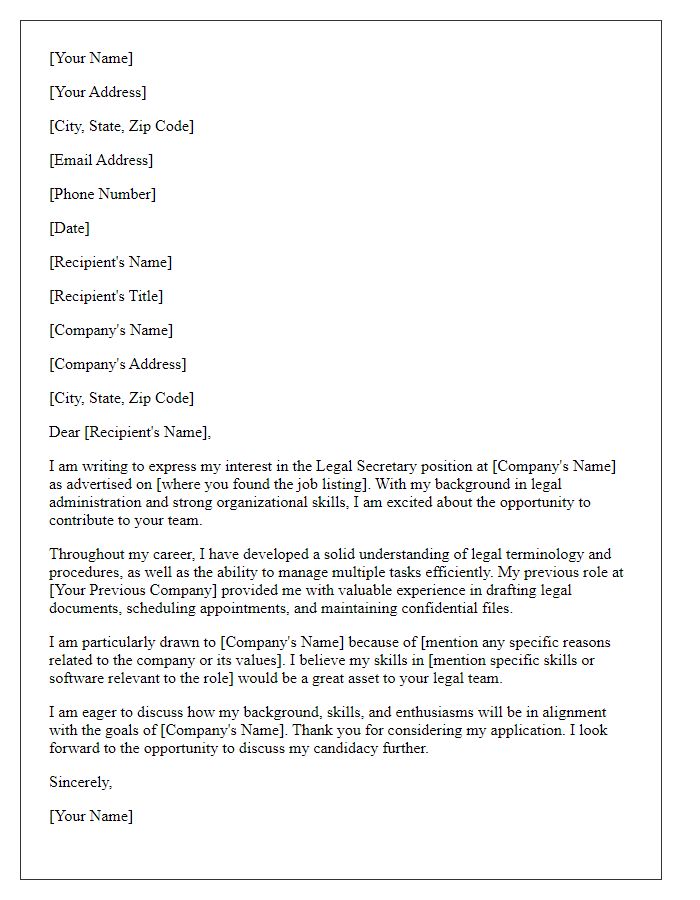
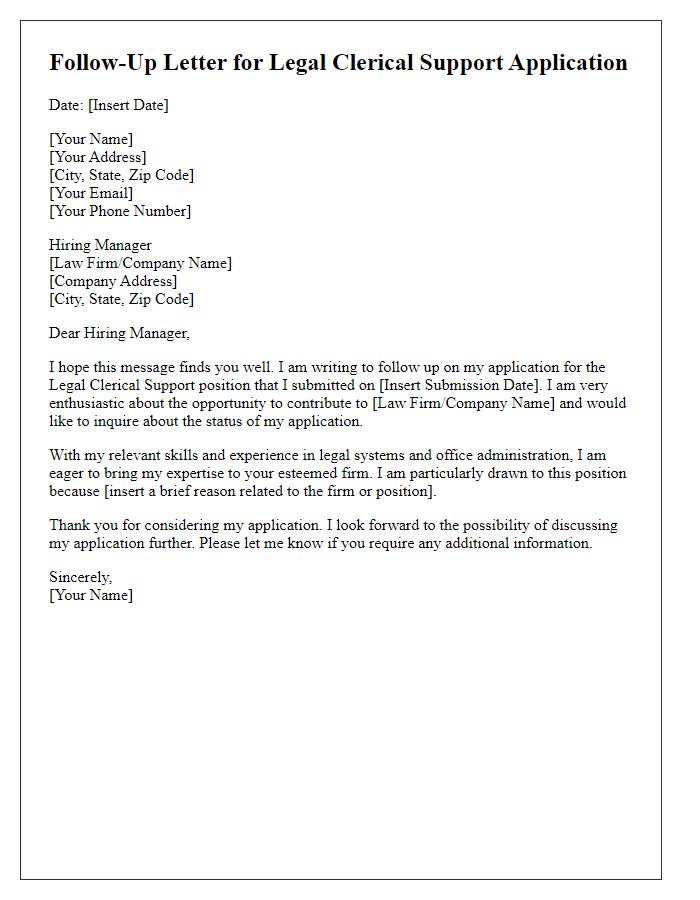
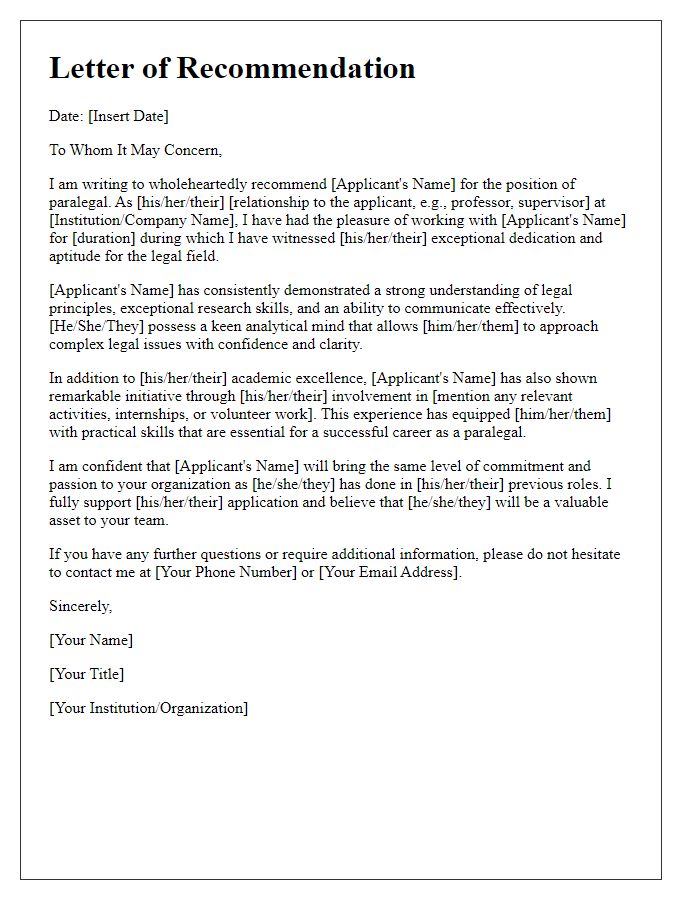


Comments